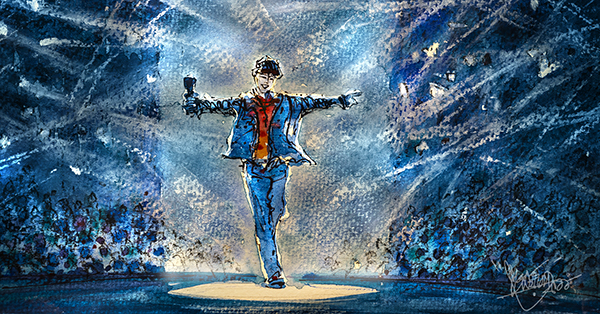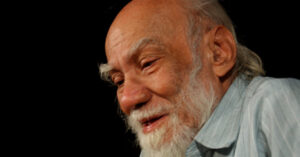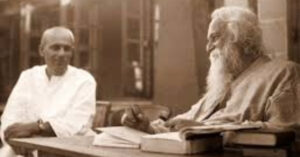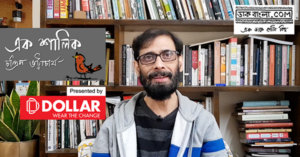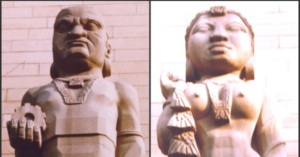Indian Indie At The Grammies
In early November this year, through the grim, dark, catastrophic times we have all been living through, there came the good news that three young Indian musicians had found the strength, determination and will, to submit their tracks for the forthcoming 64th Grammy awards believed by many to be the pinnacle of achievement for those involved in the music industry across the world. Rohan Solomon, Kiara Chhetri and Vineet Singh Hukmani are the three artistes whose tracks have been accepted for Grammy consideration. Even though these are only submissions for the awards, and none of the five tracks submitted by the three Indian artistes has made it to the final nominations, the effort made by the three indie artistes is commendable and draws attention to the many issues that artistes in India face today.
For one, all three artistes with Grammy submissions are indie artistes, and therefore not signed with big labels who supposedly have the financial might, experience and human resources to catapault artistes they represent to dizzy showbiz heights. Interestingly, while these three indie artistes were busy preparing to meet deadlines for submission, the big brand labels curiously do not seem to have bothered to submit any tracks at all from the artistes signed up with them. Do they not believe in the artistes they represent? Or did they not find any of their music worthy of submission? Or, were they just too busy to bother about the Grammys? Whatever the reasons, the fact that three Indian artistes independently submitted a total of five tracks to the Recording Academy for the Grammy Awards, while the mighty music industry in our country did not find any music worthy of submission, points to a general difference in motivation and perspective.
Fluency in English has often been prized and coveted in India, with many Indian families preferring to send their children to English medium schools. But in contrast, the mainstream music industry has steadfastly refused any support to songwriting in English, leaving many urban bands and songwriters with no choice but to look towards self-publishing and other distribution options for their work. Curiously, though, song-writing in Hindi and several Indian languages like Punjabi has embraced the inclusion of English words, phrases and terms quite enthusiastically.
At 17, Kiara Chhetri is the youngest of the three Grammy aspirants, and her Grammy submission was a track titled Why from her recently released album. Rohan Solomon’s submission is a track titled We Demand Change while Vineet Singh Hukmani submitted a total of three tracks, in various categories such as Best Rock Song, Best Pop Vocal Performance, Best Melodic Rap Song and Best Record of The Year. All the tracks are in English, possibly because each of the singer-songwriters prefers to write in English. Fluency in English has often been prized and coveted in India, with many Indian families preferring to send their children to English medium schools. But in contrast, the mainstream music industry has steadfastly refused any support to songwriting in English, leaving many urban bands and songwriters with no choice but to look towards self-publishing and other distribution options for their work. Curiously, though, song-writing in Hindi and several Indian languages like Punjabi has embraced the inclusion of English words, phrases and terms quite enthusiastically. This is true, equally, of such songs in feature films as well as those that belong to the non-film popular music genre. Take the Goggle Song as an example from the film Mubarakan:
Teri ankhiyon se ho gaya pyar
Tere pyare-pyare goggle utaar…
… Ho khamakha mujhe chase kare tu
Love ka matter waste kare tu
Don’t think too much sohniye
Mere sang kamar hila …
Take a look at the 18 Indian musicians who have received Grammy awards in the past and several trends seem to emerge. The first Indian artiste to receive a Grammy was Pandit Ravi Shankar in 1968 and until approximately 2008, most of the Indian artistes who received Grammy awards are specialists in classical music. However, their awards are usually in the World Music Category. In 2008 the celebrated A R Rahman received the Grammy, but for the music of Slumdog Millionaire, a film set in India, but not a homegrown Indian film in many ways. In recent years, new age albums and tracks, as well as popular film tracks from India have received Grammy and other international awards, with traditional music gradually being edged out. However, even in the popular music categories or in the case of world music or new age tracks, Indian artistes, tracks and albums that make it to the Grammy arena are usually initiated, supported and produced by non-Indian entities. What does this say about out music industry and the self-appointed custodians of music in India? Are we going to let our artistes battle it out on their own, without any support from the Indian music industry or state-supported art and culture organisations?
That would not be surprising of course, given the fact that many of our medal winners at the Olympics also shared stories of the challenges and struggles and lack of official support they experienced. For now it does seem that for Indian musicians aspiring to win a Grammy, their motto would have to be – Ekla cholo re!
Illustration by Suvamoy Mitra
